Venezuela vows crackdown on 'currency tourists'
Updated: 2013-10-06 06:32
(Agencies)
|
||||||||
|
 |
|
Venezuela's President Nicolas Maduro speaks during an event in Coro in the state of Falcon, in this September 30, 2013 handout photograph provided by Miraflores Palace. [Photo/Agencies] |
Most flights out of the South American OPEC nation are booked solid months ahead because locals buy up tickets to enable the purchase of dollars at a preferential rate.
In a phenomenon Venezuelans have dubbed "currency tourism," many do not even bother taking the trips, meaning planes often fly out half-empty. People sell their dollar allowances on the black market for a profit of up to seven times their official worth.
Stung by a barrage of headlines on the subject, officials at the weekend said they planned to put fingerprint machines at airports, ports and borders to identify the no-show scammers.
Only after people registered at those machines would their hard currency allowance be activated, the immigration service Saime said in a statement.
"Dollars have to be used to feed the national economy, not to speculate with," Saime head Juan Carlos Dugarte said, adding that his organization was working with state currency board Cadivi to stop the scam.
The surge in "currency tourism" has been added to annualized inflation of 45 percent, frequent blackouts, and shortages of basics such as toilet paper and milk as another symbol of the economic problems piling up.
Maduro narrowly won a vote this year to replace socialist leader Hugo Chavez, who died of cancer, but he has been struggling to deal with Venezuelans' grassroots problems, forge his own political identity, and keep the ruling Socialist Party united.
Chavez introduced currency controls a decade ago and the disparity between the official price of 6.3 bolivars to the U.S. dollar and the illegal black market rate, which is nearly seven times higher, is wider than at any point since then.
There are strict limits on the availability of dollars at the official rate but with a valid airline ticket Venezuelans may exchange up to $3,000 at the government rate.
They profit from that using their credit cards in an arbitrage process known as "el raspao," or "the scrape." Either they use credit cards abroad to obtain a cash advance which they then carry home, or they send their cards to friends overseas who swipe the cards and send the cash back.
Sometimes people fly abroad carrying multiple cards of friends and relatives that they "scrape" in one go.
Critics of Maduro, led by opposition leader Henrique Capriles who lost the April presidential poll by 1.5 percentage points, say failed socialist economics and mismanagement are to blame for this and a host of other economic distortions.
But the government alleges that a silent "economic war" is being waged by rich opponents encouraged by the United States. Maduro expelled three American diplomats this week over the issue and has promised to "radicalize" government in response.
The scramble for airline tickets has led to a huge rise in prices, often double or triple what they were a few months back.
Local consumer group Anauco criticized the plan to introduce fingerprint machines as "improvised and uncomfortable" for honest travellers, saying authorities could easily identify the no-shows by cross-referencing immigration data and flight manifests with registers held by currency board Cadivi.
"Our airports often collapse anyway due to the normal security processes, so we can ill afford a new measure or possible queue before boarding," it said.
Economists are clamoring for an easing of the foreign exchange system to stop problems like "currency tourism".
"Nothing is going to work unless you attack the root problem: reducing the gap between the official and parallel rate, or at least making it manageable," said Asdrubal Oliveros, of local think-tank Ecoanalitica.
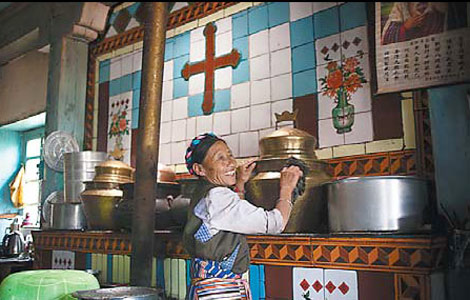
 Catholic conclave abides in Tibetan village
Catholic conclave abides in Tibetan village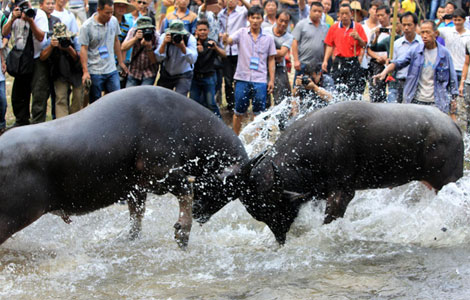
 Travel highlights during Golden Week
Travel highlights during Golden Week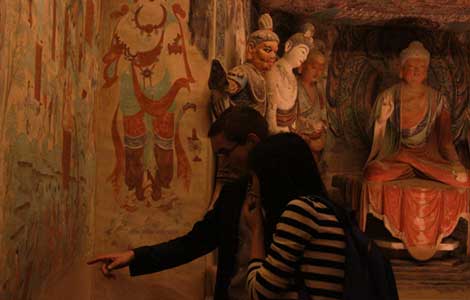
 Buddhist Art at the gateway of the Silk Road
Buddhist Art at the gateway of the Silk Road Embracing innovation
Embracing innovation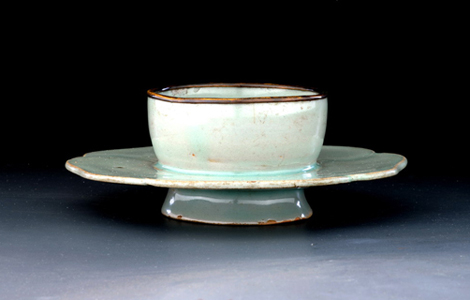
 Search for a cup holder's identity
Search for a cup holder's identity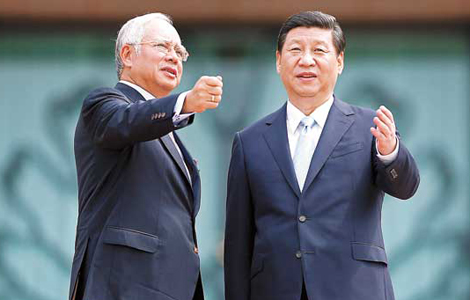
 China and Malaysia set blueprint to boost ties
China and Malaysia set blueprint to boost ties
 China Open: Li Na loses 1-2 to Petra Kvitova
China Open: Li Na loses 1-2 to Petra Kvitova
 A holiday without much fun
A holiday without much fun
Most Viewed
Editor's Picks

|

|

|

|

|

|
Today's Top News
Iran is 'a year or more' away from nuke weapon
US govt workers to be paid
Republicans hang tough on shutdown
Bilateral co-op lifted to new level
China tops APEC CEOs' picks for investment: survey
Man burns self on National Mall in Washington DC
UN aviation body reaches deal on carbon emissions
Italy's senate panel votes Berlusconi's expulsion
US Weekly

|

|






